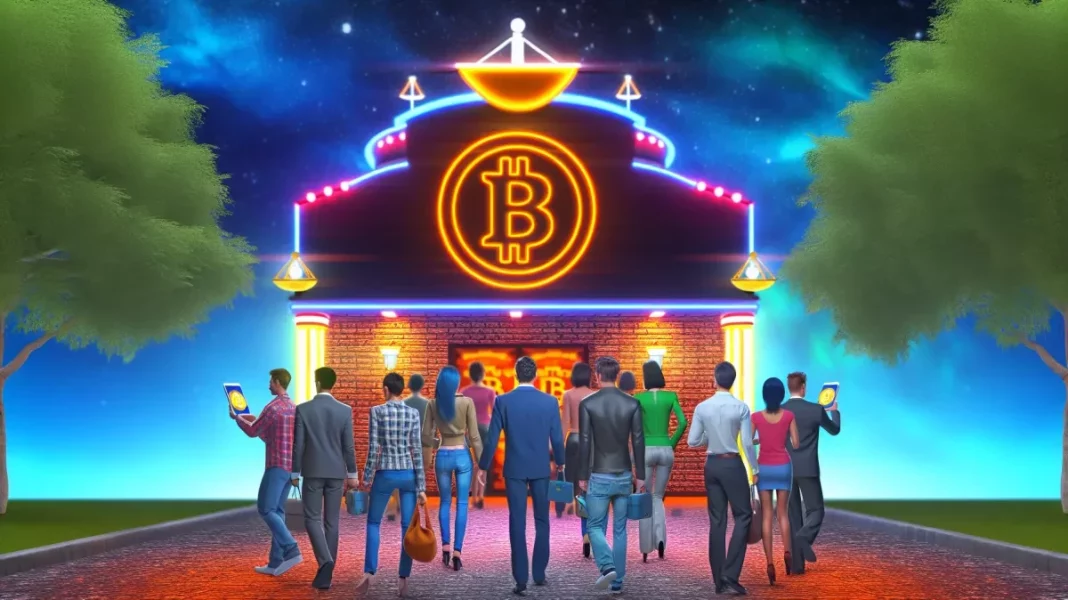Peer-to-peer (P2P) betting is revolutionizing the online gaming scene, particularly in the world of poker. In recent years, the surge of decentralized poker rooms has brought a notable disruption to the traditional online gambling ecosystem. These decentralized rooms leverage blockchain technology to facilitate a gaming environment that’s not only fair and transparent but also eliminates the need for a central governing body. At the forefront of this paradigm shift is the integration of smart contracts – self-executing contracts with the terms of the agreement directly written into code.
In traditional poker rooms, players often express concerns about the possibility of unfair advantages, such as bots or insiders exploiting the system. However, the decentralized model addresses these concerns head-on. By operating on a blockchain, decentralized poker rooms offer a level of transparency previously unseen in online gambling. Every bet, win, and loss can be independently verified on the blockchain, granting players unprecedented insights into the integrity of the games they are participating in.
The use of smart contracts is where things get even more interesting. Smart contracts automate transactions and ensure that all conditions of the betting agreement are met without any time lag. When applied to poker, this means that the distribution of winnings is immediate and indisputable – the code enforces the outcome. This kind of instant settlement is a significant draw for players who are accustomed to waiting for processing and withdrawal times on traditional platforms.
What’s even more impressive is that smart contract gaming removes the need for a middleman. Typically, in P2P betting, there would still be a need for an entity to facilitate the transactions, but in the world of decentralized poker rooms, the blockchain acts as the trusty mediator. This not only lowers the overall costs for players (since there’s no need to tip the house), but it also enhances the security of the platform. Without a central point of control, decentralized poker rooms are less susceptible to hacking and fraud.
From a regulatory standpoint, decentralized poker rooms present a unique challenge. Traditional online gambling operations are subject to strict regulations that govern their fairness, security, and financial transactions. However, with P2P betting in decentralized poker rooms, the enforcement of these regulations can be murky. The anonymous nature of blockchain transactions and the lack of a central authority mean that players are largely responsible for ensuring they adhere to the gambling laws of their jurisdiction.
Despite the regulatory gray areas, the demand for decentralized poker rooms continues to grow. Players are drawn to the idea of a fairer, more secure gaming environment. The allure of potentially higher returns and the elimination of certain fees associated with traditional online gambling also contribute to the rising popularity of these platforms. Tech-savvy users in particular are quick to adopt and promote these decentralized rooms, drawn by the innovative use of blockchain technology and the autonomy it provides.
As we delve deeper into the realm of smart contract gaming and decentralized poker, it’s clear that this is just the beginning. As blockchain technology matures and becomes more accessible, we can expect to see a greater adoption of these platforms. The sophistication of smart contracts will also likely increase, offering more complex and engaging gaming experiences that could rival the offerings of traditional online casinos.
In conclusion, P2P betting in decentralized poker rooms represents the cutting edge of online gambling. By leveraging blockchain technology and smart contracts, these platforms promise a new era of gaming that prioritizes fairness, security, and player autonomy. As this industry continues to evolve, it poses exciting questions about the future of regulation, the role of technology in gaming, and the transformative potential of decentralized systems in the broader world of online gambling. While there are challenges to be addressed, particularly in terms of regulation and user education, the future of decentralized poker rooms shines bright, heralding a dynamic shift in how we perceive and engage with the digital betting landscape. With such groundbreaking developments underway, enthusiasts and skeptics alike should pay close attention to the ripple effects of this technological revolution in the gambling domain.



